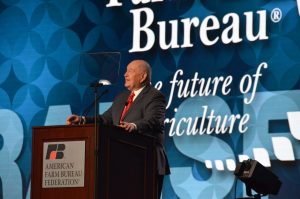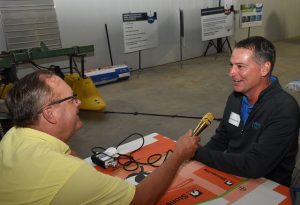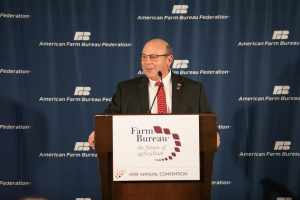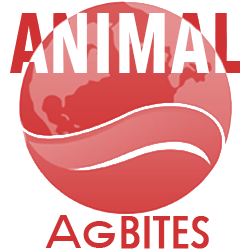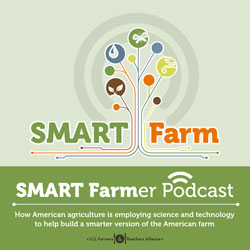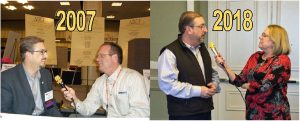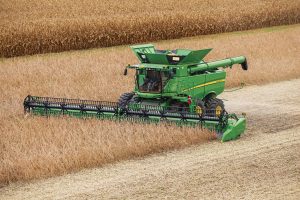 The communications team for the American Farm Bureau Federation is really getting a workout for the organization’s 99th annual meeting in Nashville this week with President Donald Trump attending Monday afternoon. Over 200 registered media and room for only 90, having last minute convention schedule changes, and just dealing with the logistics of a presidential presence will make Monday a challenge for even the most seasoned professionals. But, no matter what, you will be able to see the president’s speech live, or go back and watch it later – and you will have photos and audio almost immediately after it is over.
The communications team for the American Farm Bureau Federation is really getting a workout for the organization’s 99th annual meeting in Nashville this week with President Donald Trump attending Monday afternoon. Over 200 registered media and room for only 90, having last minute convention schedule changes, and just dealing with the logistics of a presidential presence will make Monday a challenge for even the most seasoned professionals. But, no matter what, you will be able to see the president’s speech live, or go back and watch it later – and you will have photos and audio almost immediately after it is over.
In fact, you can find the majority of the main activities at the AFBF convention live-streamed, archived, photographed, and audio filed, with multiple press releases, through the Farm Bureau convention media guide. With the help of state Farm Bureau communications specialists, the AFBF communications team has always been the best at providing content for media. Chuck was one of those state staffers at Florida Farm Bureau who was brought on the AFBF team for the 1985 convention in Hawaii. They were using some of the earliest satellite technology to send both audio and video back to the mainland for some media, but they were also shipping video stories on cassette using the latest express shipping services and getting audio content sent via telephone. News releases and photos were still mostly sent by mail but they were using some of the earliest facsimile machines at the time.
AFBF has always kept up with the latest in communications technology, so now you can watch and record it live as it happens, get high resolution photos, and subscribe to audio feeds from the event via podcast. Jamie will be on the ground there for President Trump’s address Monday and we will have an AgNewsWire virtual newsroom page set up for her photos and interviews, but here are the links to various content sources from AFBF:
Convention photos
Live streaming video and links to archived videos
B Roll Video
Audio files
Farm Bureau is really the epitome of an organization that excels in providing virtually instant digital content from their conventions. AgNewsWire is a way for smaller organizations to get content from their own meetings produced and distributed to a wider audience. It’s what we do best, and we learned a lot of it from working with Farm Bureau over the years.
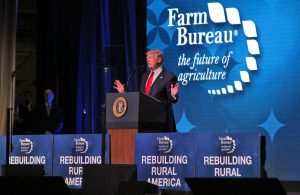 “Farm country is God’s country,” said President Donald J. Trump at the conclusion of his remarks to a record crowd at the American Farm Bureau Federation 99th annual convention in Nashville.
“Farm country is God’s country,” said President Donald J. Trump at the conclusion of his remarks to a record crowd at the American Farm Bureau Federation 99th annual convention in Nashville. 
